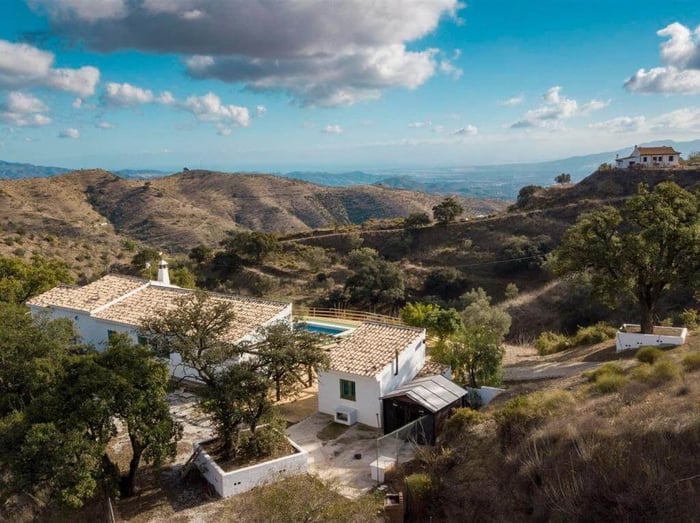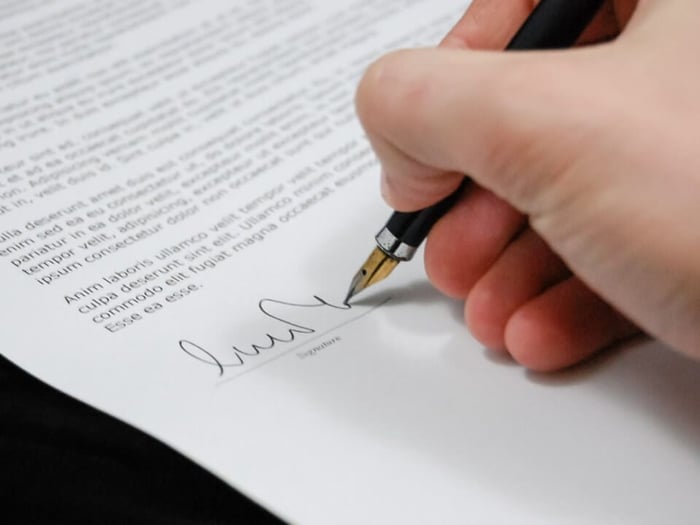A question we get asked all the time is ‘can I get a mortgage on a country property?’ The simple answer is... yes. This question is swiftly followed with ‘What if it doesn’t have an AFO’?? Well, without revealing all our trade secrets…. It's usually not a problem.
Of course, every home is different, however if you are familiar with and understand the rules and regulations it shouldn’t be a problem if it doesn’t have an AFO. This is why it is so important to use an agent that specialises in inland properties!
First of all, what is an AFO?
During the last 10+ years, many properties in the countryside in Andalusia were constructed without the correct licenses. Roughly 90% of these homes have been built without the correct planning permissions! Despite these homes not being registered correctly, it's not illegal to sell them, as long as the buyer understands what they are buying and the risks that this could entail.

The aim of an AFO is to regularise and recognise the situation of dwellings located on land which cannot be developed (rural land). Town Halls do this by issuing an administrative certificate stating the legal situation of the property - an ‘AFO’.
This Decree is mainly applicable for properties situated on “Suelo no Urbanizable” - land which cannot be developed, also known as rural land, in the region of Andalusia, but it can also sometimes be applied to urban land.
There is a limitation period for these homes, which is 6 years (depending on the classification of the land it is built on). If the property has existed for six years or more, normally no claim or demolition order can be made against it, as long as the land is not protected. This also means that the building/s on the plot can be correctly registered on the Escritura, (Title deeds).
Please note that the property registration (Escritura) and the AFO certificate are two completely different things. Each Town Hall has drawn up a set of local rules to regulate the procedure by issuing these certificates and to regulate the tax or duty that must be paid to obtain them.
The tax to be paid to obtain your AFO certificate varies depending upon the Town Hall and the difference could be significant depending on which municipality the property is situated in.
So…. another common question ‘Does having an AFO make your property legal…?’ The simple answer is… no.
If your property has title deeds and is correctly registered on the deeds, then your property is legal. The AFO certificate does not change the legal situation of the property, nor does it provide any more rights than it already has.

Basically, the contents of the AFO certificate imply the following:
- Confirmation that there are no administrative proceedings registered against the construction by the Town Hall. (No sanctions or demolition proceedings)
- Confirmation that any possible town planning infringement that could have been committed has expired. (You won’t be held responsible).
- Confirmation that the construction fulfils the minimum requirements of living and health conditions, including suitable sanitation (septic tank).
- Confirmation of the type of building work that can be carried out on the property: strictly refurbishment and conservation. Extensions or structural building work is never allowed. The same rule applies for swimming pools.
Any construction that fulfils the above and is duly registered is not going to be ‘more legal’ after obtaining the AFO.
However, utility companies may require the AFO certificate for new contracts and connections, but it is not required for any change of ownership of existing supplies.
You do not need the AFO to sell or buy a property. It is not a legal requirement for the change of ownership and the Notary won’t request this certificate.
Most banks in Spain will require the AFO certificate in order to grant you a mortgage against a country property, however there is a very small selection that don’t, as long as the property complies for an AFO. Therefore, you can get a mortgage. You just need to know which banks to go to.
To read more about the AFO in detail read our blog here What is an AFO?
After all that's been said above, you still need to be cautious. Purchasing a country property in Andalusia can be a minefield if you don’t know what you are doing. A good agent that specialises in country property will always ask to see the property documentation before listing, and it is imperative that the agent understands these documents. If they don't and they take you to a property that doesn't have an AFO, and you require a mortgage, they could be wasting your time and theirs, as your bank may not lend on a country property that does not have the AFO certificate. It is extremely important to tell your agent if you need a mortgage, if you have already been pre-approved and with whom. A good knowledgeable agent can give you all the advice you need and save you a lot of time, money and heartache. The same applies for a good local solicitor that specialises in this types of homes.
It is important to be aware of the specifics of Spanish mortgages before buying a country property. In the last couple of years, the Spanish property market has picked up after a long slump following the financial crash. Spanish mortgage lenders offer an array of mortgages to foreign buyers. You can even obtain a Golden Visa by purchasing a property in Spain. For more information on this, please see our blog on Spanish Golden visas.

If you’re thinking of buying in Spain, you’ll need to think long-term. Spain’s capital gains tax of more than 20% can offset any benefits of buying for short-term investors. Buying a bargain is difficult to come by. Also, buyers need to factor in property transaction costs of around 9 - 10% of the property’s value (if it’s a resale home). Purchase costs for new builds for example are higher.
If house prices continue to rise, it is still likely that you’ll need a minimum of three to five years to offset these costs and make a profit on your investment.
Spain offers the usual types of mortgages, however the interest rates are usually lower and can either be variable or fixed during the term of the contract. There are also additional expat-focused Spanish mortgages offered by international banks. Spanish mortgages have no restrictions on purchase price or nationality.
The biggest difference between residential and non-residential loans is the maximum loan-to-value (LTV) that banks will allow. Residents can generally borrow up to 80% of the property’s assessed value. Non-residents are limited to 60-70% LTV, depending on the mortgage type. If you are purchasing a repossessed property from the bank, it may be possible to borrow 100% of the property value.

Don’t be put off buying country property in Spain!! Remember, a good agent and solicitor will be invaluable and will be able to check this information relatively quickly. Buying a property without an AFO can be done. It's also a good opportunity to point out that the law is changing in Spain, which will allow thousands of homes in Andalusia to comply for an AFO. Under the legislation, homes older than six years, not built on protected or flood land will be able to gain an AFO certificate, in general circumstances.
If you are considering purchasing a country property in Spain, give us a call and see how we can help you. This is our speciality, and we can guide you through the whole process with relative ease to find you your dream home in the sunshine!
We cover Alhaurin El Grande, Alozaina, Coín, Guaro, Mijas, La Cala de Mijas and Mijas Costa, Monda, Tolox and surrounding areas around the Guadalhorce Valley.
Simply fill in our contact form or call us on (+34) 951 242 157 and we will be happy to help.





